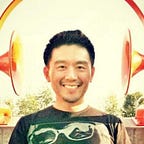On Community and Culture
“My Point of View” for the 4Culture Newsletter
I have always been suspicious of the words community and culture because I find myself on the outskirts no matter how hard I try to fit in. I smile when everyone is serious or cry when everyone laughs. Perhaps this is why I travel. The definition of a foreigner is someone who is out of place.
The paradox of travel is that to get from here to there, you have to sit still. I just returned from London, Aldeburgh, New York, New Haven, and Portland. Next year, I will be in China and hopefully England again. Travel has become going from empty seat to empty seat on the bus, taxi, airplane, or train.
In August, over 500 people attended the North American Taiko Conference held in Seattle. The participants came from places like Winnipeg, Utah and Vermont. Since I was home for the weekend and I was invited to teach, I joined the conference.
My composition workshop went well, but I especially enjoyed all the non-workshop moments such as looking for a breakfast burrito with New York Teddy and learning how to make boba-straw panpipes with Los Angeles George.
I became part of this taiko social network without logging on. I didn’t post my photos on a Facebook or beats in a MySpace. Rather, by hanging out and smiling, I met Teddy, George and a bunch of other folks who have contributed to my definition of a taiko community and culture. I treasure these moments and think:
Communities and cultures develop slowly over time through the experience, dedication, support, and presence of unsuspecting individuals.
Less than 40 years ago kumi-daiko (group drumming) was introduced to North America. Since then, hundreds of taiko groups have popped up as if we were on a taiko-rabbit farm. I never thought that when I started playing over a dozen years ago, I’d be hopping around as a workshop leader working with groups around the world.
While people have always traveled and exchanged ideas, the mechanisms for connecting continually expand. You may be meeting me for the first time through this writing on the Internet, so… hello. Yet I hesitate to say that our up-to-now, one-sided interaction has anything to do with community or culture.
Then again, I’m here (or was here) and you’re here (or will be here) at the computer, iPhone, or PDA. We’re travelers warming previously empty seats and while you might want to yell at me, I definitely want to yell at you. Travel, on an airplane or through cyberspace, makes me weary.
I am still suspicious of the words community and culture. To me, they signal a closed mathematical set. How do I find an artistic home in a country that values conformity over anarchy? I suggest adding the word “changing” to the equation.
Changing community and changing culture makes where I live and work dynamic. With flux in the mix, a cultural community such as one made up of North American taiko players thrives at all levels from large drums to boba-straw panpipes.
Originally published in August 2007, as the first of 4Culture’s My Point of View Column in their eNewsletter. Online version no longer available.
